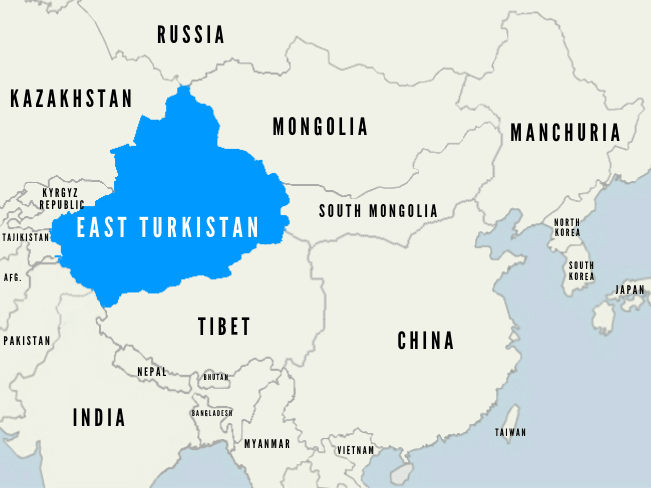
China’s rulers fear balkanization —with reason?
Chinese state media are promoting an official “white paper” entitled “Historical Matters Concerning Xinjiang,” denying the national aspirations and very identity of the Uighur people of China’s far western Xinjiang region. These are portrayed as inventions of Western-supported “separatists.” Yet some leaders of the Uighur exile diaspora have indeed launched an “East Turkistan” independence movement, and are seeking allies among Tibetans, Mongols, Manchus and Hong Kongers. China’s rulers may be creating exactly what they fear with their intransigent denialism on identity and ultra-draconian measures in Xinjiang, Tibet, Inner Mongolia and Hong Kong. (Map: East Turkistan National Awakening Movement)


